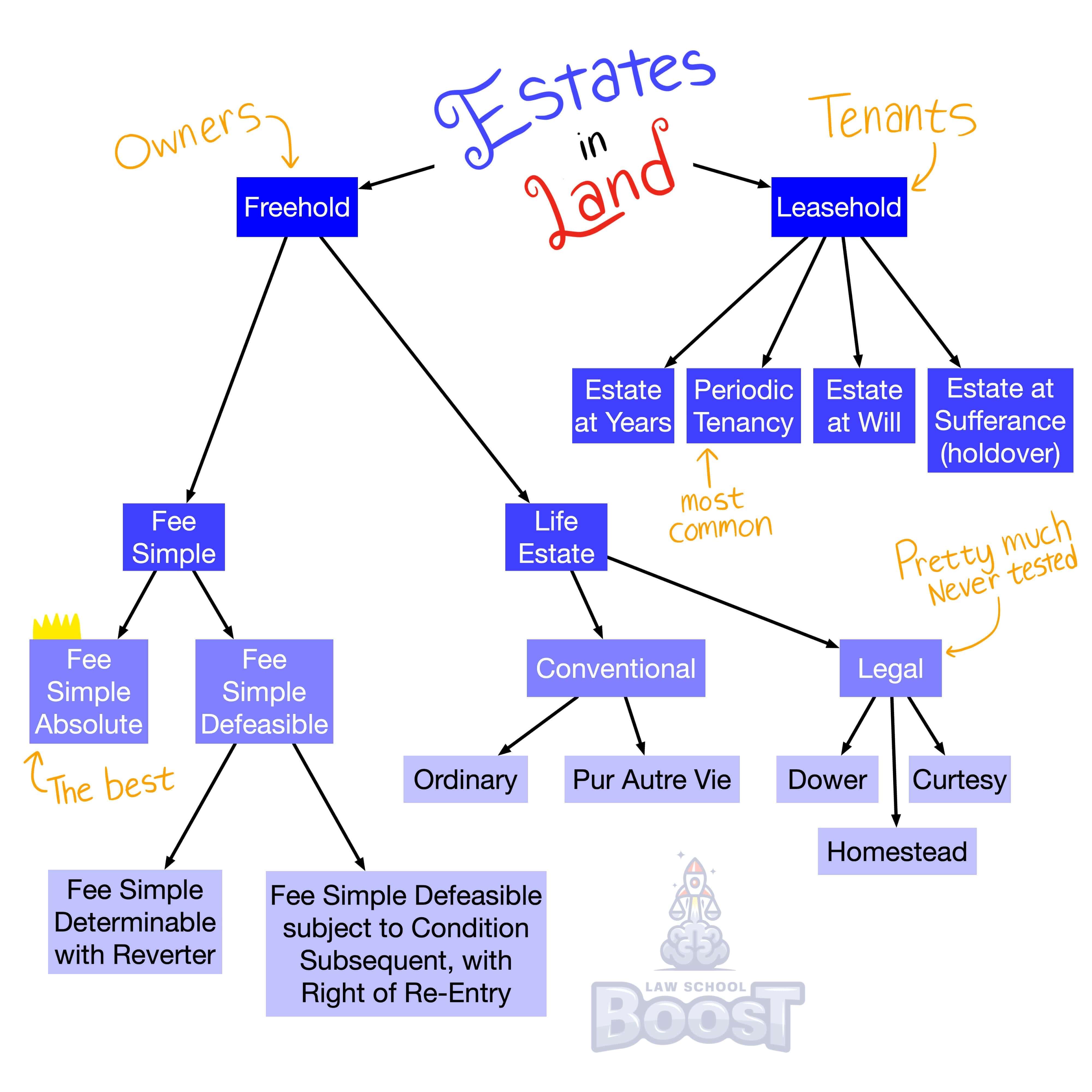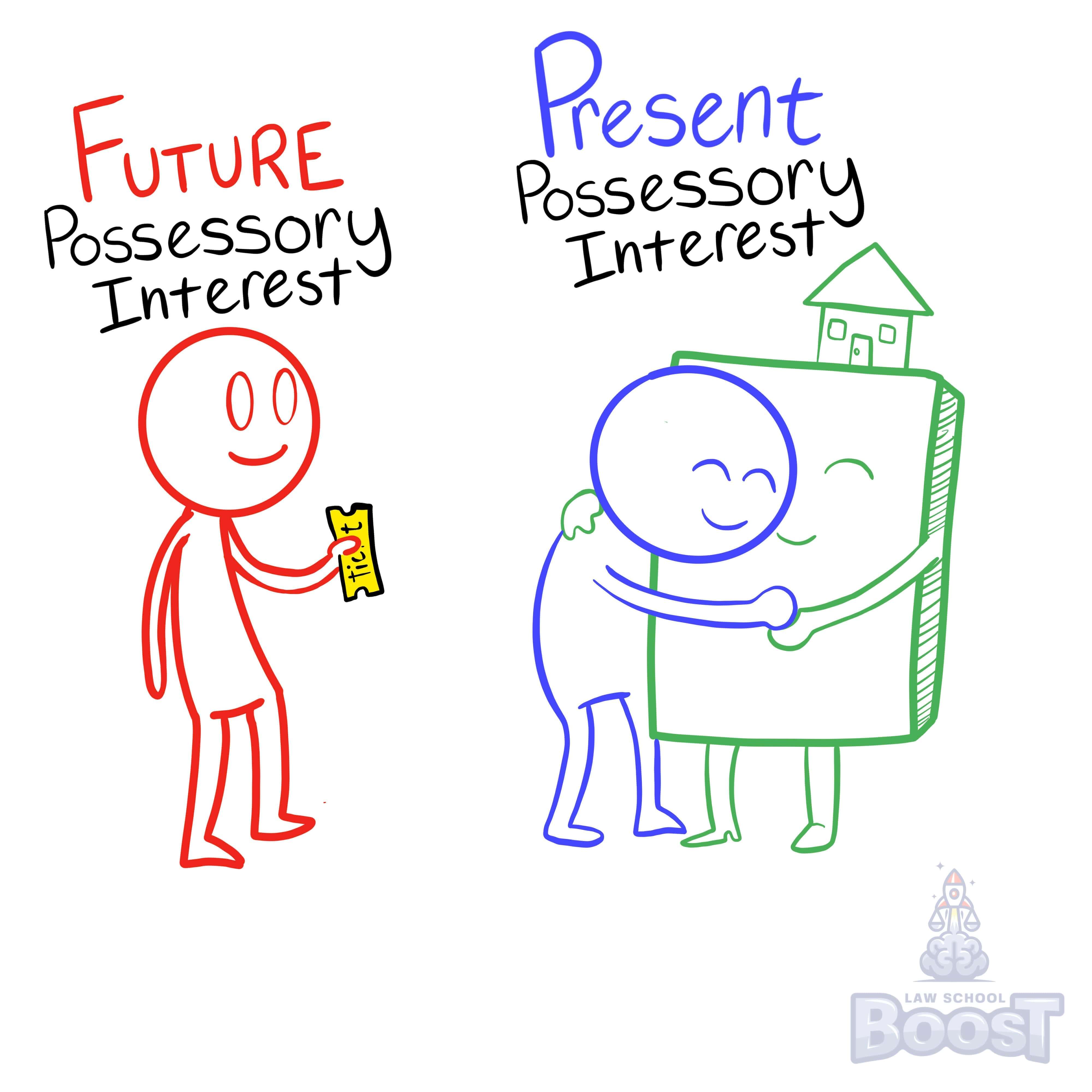😀
Real Property • Present Possessory Estates
PROP#012
Legal Definition
The holder of a life estate is entitled to any ordinary uses and income or profits of the land, but cannot do anything that injures the interest of a remainderman or reversioner, who can sue to enjoin such an action.
Plain English Explanation
Getting a life estate is sort of like getting clothes as a child with younger siblings. They are your clothes, and you're allowed to do what you want in them, play in them, etc. However, Mom really wants you to keep them nice enough so they can be handed-down to your younger sibling after you're done with them.
In other words, someone who has a life estate can make use of the land, but they can't do things that risk harming people who are next in line to own the land.
In other words, someone who has a life estate can make use of the land, but they can't do things that risk harming people who are next in line to own the land.
Hypothetical
Hypo 1: Oz conveys Lakeland "to Amy for life." Lakeland is a beautiful, magical piece of land covered in natural lakes, full of fish and life. Included on Lakeland is a coffee shop that caters to local fishermen that visit and pay for the right to fish on Lakeland's many lakes. After years of dealing with smelly fisherman, Amy decides she's had enough and that it's best to fill in the lakes with cement and turn Lakeland into a parking lot. Result: Amy had every right to fish on Lakeland, as fishing would an ordinary use of the land. Likewise, Amy had every right to keep 100% of the money generated by the existing coffee shop and fishing permits. However, Amy had an obligation to take care of Lakeland so that the next person in line wouldn't have their interest harmed.
Here, Amy filling in all the lakes of Lakeland with cement is absolutely a harm to Oz's interest, who is a reversioner, since the future interest of the land will revert back to him once Amy dies. After all, Oz would undoubtedly expect Lakeland to revert back to him or his heirs in the same condition he gave it to Amy.
Note: Had Oz instead conveyed Lakeland "to Amy for life, then to Bob," it would be Bob's interest that matters. Bob would be a remainderman.
Here, Amy filling in all the lakes of Lakeland with cement is absolutely a harm to Oz's interest, who is a reversioner, since the future interest of the land will revert back to him once Amy dies. After all, Oz would undoubtedly expect Lakeland to revert back to him or his heirs in the same condition he gave it to Amy.
Note: Had Oz instead conveyed Lakeland "to Amy for life, then to Bob," it would be Bob's interest that matters. Bob would be a remainderman.
Visual Aids


Related Concepts
How is a fee simple determinable created?
How is a fee simple subject to condition subsequent created?
In assessing a present possessory estate, what is affirmative waste?
In assessing a present possessory estate, what is ameliorative waste?
In assessing a present possessory estate, what is permissive waste?
What are the 3 types of waste a life estate holder may commit?
What are the present possessory estates?
What happens when a life estate holder renounces his interest?
What is a defeasible fee?
What is a fee simple absolute?
What is a fee simple subject to executory interest?
What is a fee tail, how is it created, and what is the result of its creation in most jurisdictions today?
What is a life estate?
What is a life estate pur autre vie and how is it created?
What will a court do if it is not clear whether someone intended to create a fee simple determinable or subject to condition subsequent?


